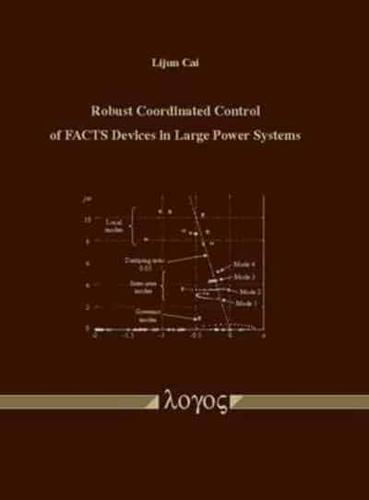Publisher's Synopsis
With the rapid development of power electronics, Flexible AC Transmission Systems (FACTS) devices have been proposed and implemented in power systems. This research mainly investigates the robust coordinated control of FACTS devices and traditional power system controllers in large power systems. The following objectives have been achieved: FACTS modeling and controller design: FACTS devices are modeled using the current injection method. Linear and non-linear methods for the FACTS damping controller design are developed. Optimal choice and allocation of FACTS devices: Using the genetic algorithms, the locations of the FACTS devices, their types and rated values are optimized simultaneously. The objective function, which consists of the investment costs for FACTS devices and the generation costs, is minimized.Adaptive FACTS transient controller design using ANFIS technology: This objective deals with the development of fuzzy adaptive FACTS transient stability controller. Furthermore, by means of Adaptive Network based Fuzzy Inference System (ANFIS) technology, the fuzzy controller parameters are optimized.Simultaneous coordinated tuning of FACTS damping controller and conventional Power System Stabilizers (PSSs): Using the linearized power system model and the parameter-constrained non-linear optimization algorithm, interactions among PSS and FACTS damping controllers are considered. The controller parameters are optimized simultaneously to achieve a global optimal damping behavior.Robust FACTS loop-shaping Power Oscillation Damping (POD) controller design in multi-machine power systems: By applying the model reduction and modern robust loop-shaping control technique, the FACTS robust loop-shaping POD controller is realized. This controller exploits the advantages of both conventional loop-shaping and modern robust control technique. Moreover, it is a decentralized approach and suitable for FACTS controller design in real large power systems.








